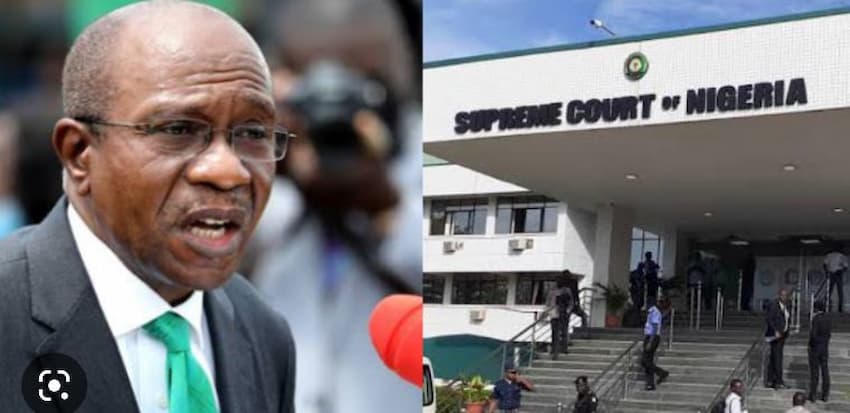The Supreme Court of Nigeria has again adjourned the old naira case between governors of some states in Nigeria and the Federal government till after election.
Recall that the Central Bank of Nigeria, CBN, had fixed February 10 as deadline for ever to exchange their old naira notes with the new redesigned notes.
READ ALSO: Breaking News: Confusion As CBN Denies Asking Banks To Collect Old N500, N1000 Naira Notes
CBN had said that the old N500 and N1000 naira notes have ceased to be legal tender.
Also, President Muhammadu Buhari had, in a nationwide broadcast, also backed the CBN on the cashless policy.
He had, however, directed the CBN to return back the old N200 naira notes into circulation to ease the sufferings of Nigerians who have not been able to access the notes.
The Case:
Recall that three governors had sued the Federal Government to the Supreme Court over the phasing out of the old naira notes.
Much later, about 17 other states have so far joined the suit against the federal government.
The states are asking the Supreme Court to rule as null and void, the cashless policy by the Buhari-led administration which says old naira notes are now illegal tender in Nigeria.
They also said that the redesigned policy and cashless policy of the Buhari-led government are ill-timed.
After hearing the case, the Supreme Court adjourned the matter till after election coming up this Saturday.
It said it would deliver its judgement on March 3rd.
The Supreme Court had previously issued an order saying the old notes should remain in circulation.
Today’s arguments:
In court today, the arguments from both parties to the suit centered on contempt of court.
According to counsels from the state governors, the federal government, through the Attorney-General of the Federation, Abubakar Malami, committed contempt of court.
They claimed that Malami who represents the federal Government, did not ask the CBn to obey the Supreme Court’s interim injunction that the old naira notes should remain legal tender and in circulation.
Meanwhile, some proponents of the FG have argued that an order of interim injunction from a court only lasts for seven days. That means that even if the FG were to obey the injunction, it was only going to be for just seven days.
Nigerians suffering:
Ever since the introduction of the policy, Nigerians have suffered and are still suffering the lack of cash for transaction.
The policy has caused naira scarcity as most Nigerians can’t access naira, both old and new notes.
Videos abound of angry Nigerians fighting at banks, some crying to be given cash at banking halls while many other youths in several states took to the streets burning and vandalising banks and ATMs.



















 and then
and then